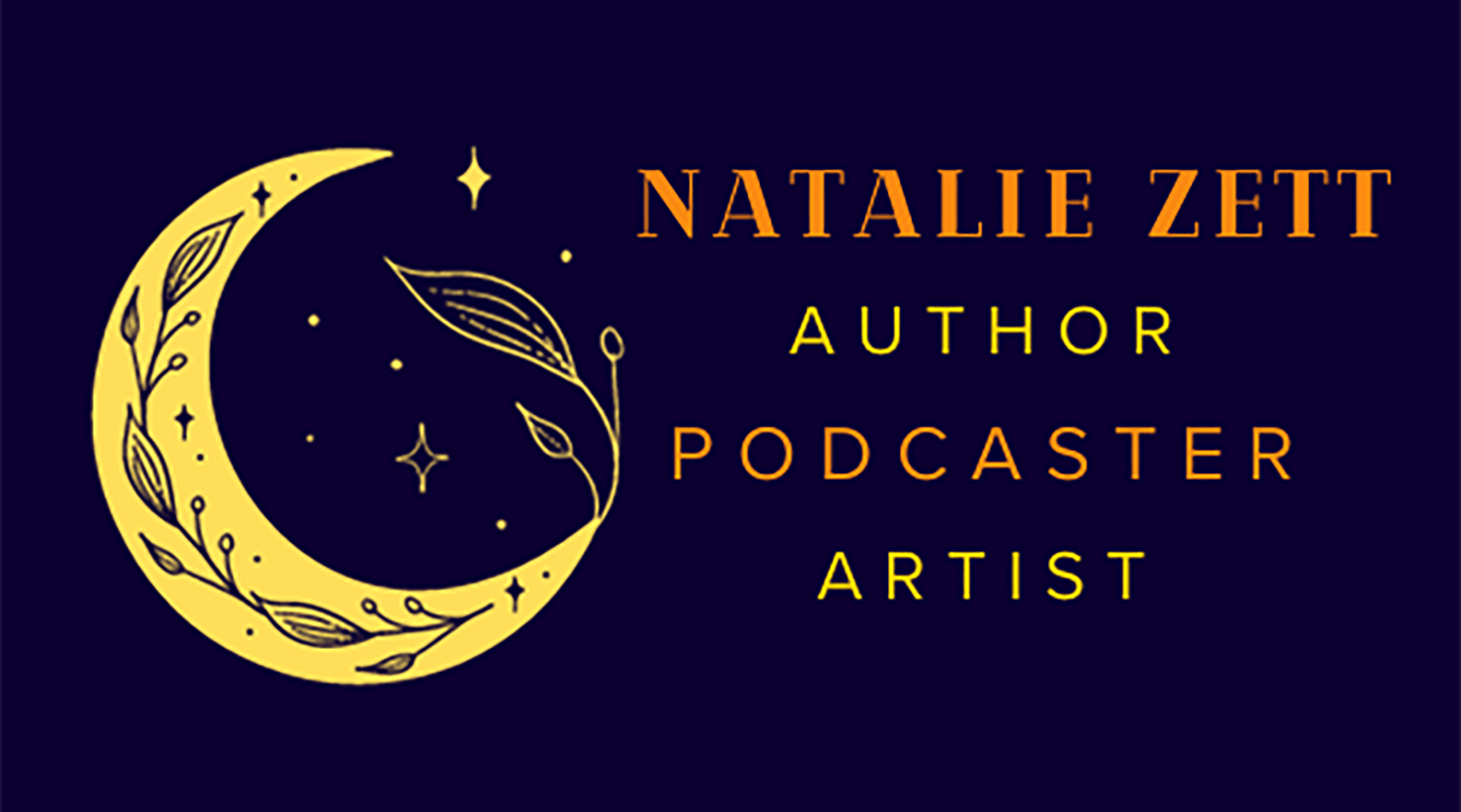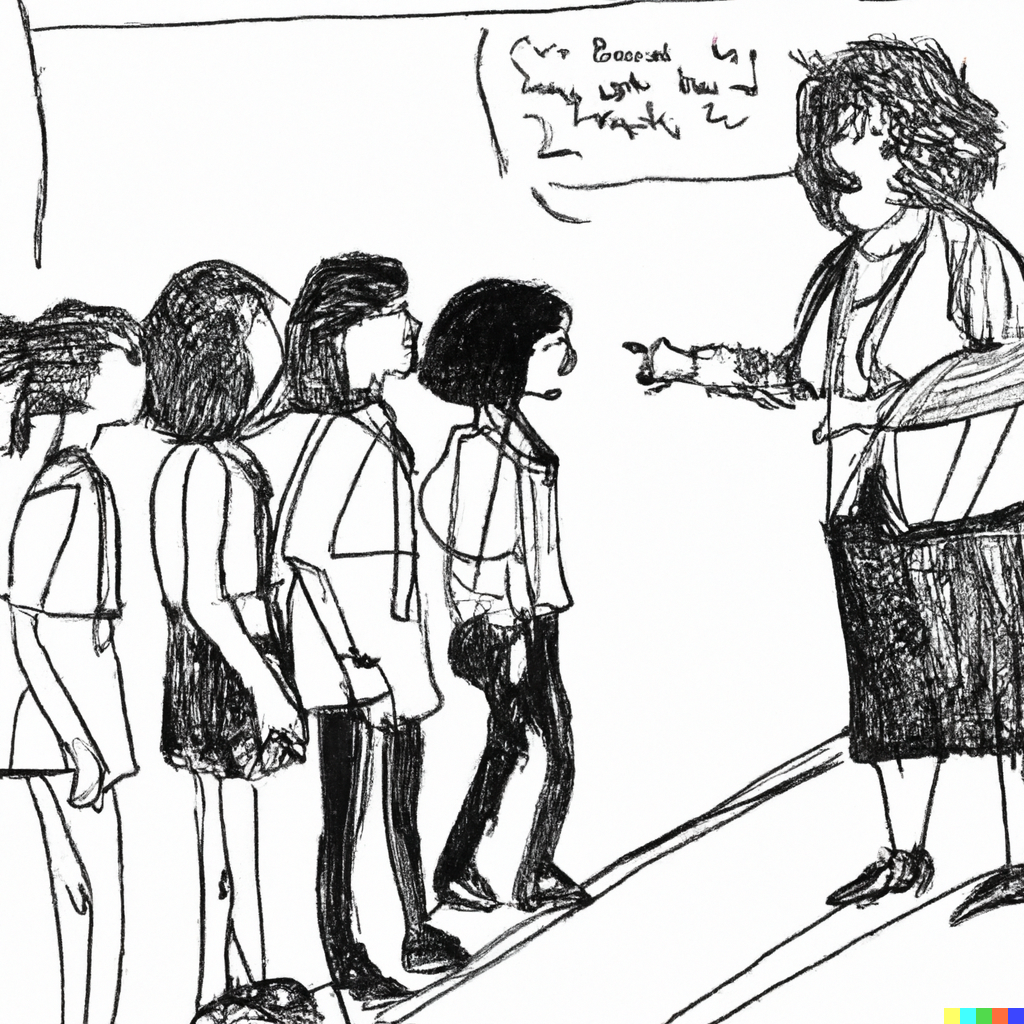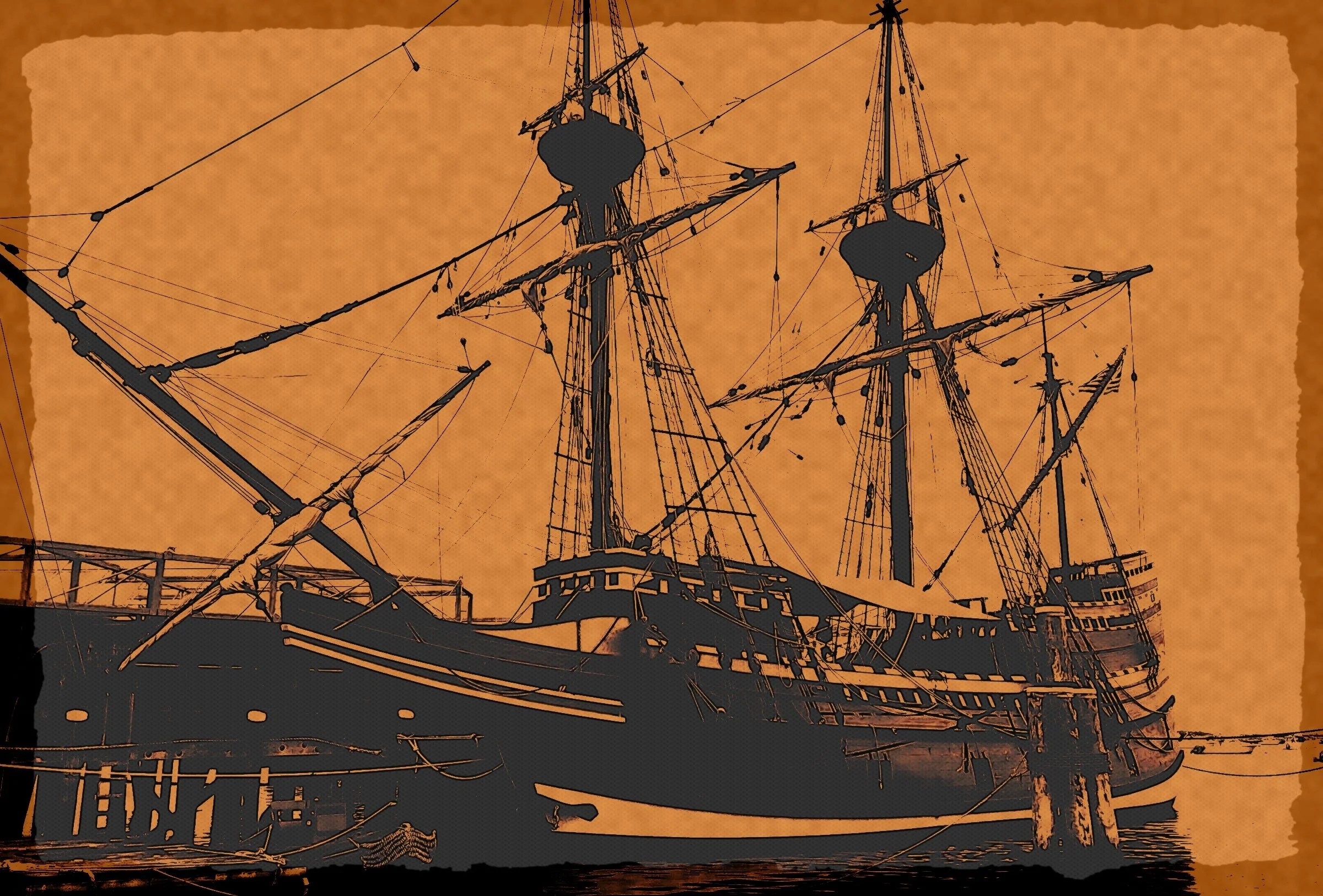The Mayflower People OR The Day I Learned I had No Family History
I’m Natalie Zett, author of “Flower in the River,” which is a tale spun from the threads of a barely whispered disaster, a tragedy so elusive even Google might shrug! It’s about The Eastland Disaster, which took place in Chicago in 1915 and killed 844. My grandmother’s 19-year-old sister was among the casualties.
Unlikely Family Historian — Me!
I “discovered” that I had no family lineage during elementary school. Despite being misled by certain authority figures (well, one authority figure), I became a family historian anyway.
But before we dive headfirst into the unknown, I will set the stage for this zany adventure. If you haven’t read my book or aren’t familiar with the events that inspired it, fear not! Head over to my website, Flower In The River by Natalie Zett, for a summarized version.
Now, let’s talk about the big picture. At its core, my story is about the fateful Eastland disaster of 1915. This cataclysmic event, which few of us had ever heard about, had an enduring impact on my family for generations. Little did we know that losing one family member would reverberate through time, shaping our collective destiny.
But it’s not really all about me!
Through this narrative, I hope to ignite a spark within you, urging you to embark on your own quest to unearth the hidden gems of your family’s past.
Time to unravel the peculiar events of my elementary school days. This was a time when talking too much and laughing were “crimes.”
Warning: The following story makes no sense and goes against all reason.
Return to the mid-1960s. It wasn’t always groovy, especially for me in elementary school in inner-city Cleveland. Now, the kids in this peculiar educational melting pot would have fit right in at the fictional Nevermore Academy of Netflix’s Wednesday series. We were a motley crew of misfits. Yet, despite our quirks, we all passed a series of challenging standardized tests — with flying colors. Our reward was being placed in the “Enrichment Learning” program. We were deemed intellectually gifted, yet still somehow lacking basic social skills — at least in the eyes of our teacher.
We were a diverse group, mostly from Eastern and Central European and Southern Italian backgrounds. We had a few recent immigrant kids who were tossed into the deep end of English fluency as well. Fortunately, some of us could act as impromptu translators, helping to bridge the language gap between our teacher and classmates. Among us were also several black students whose grandparents and parents hailed from the South. Unbeknownst to us, we were all part of the working class, blissfully unaware of the socioeconomic labels that would define us.
In our eyes, we were just kids whose parents and grandparents toiled away in factories or other blue-collar jobs. The fortunate families could afford a modest bungalow, perhaps even a car. We were meant to take over our parents’ factory jobs eventually, as they provided security and good money.
Yet, there was one person who saw us differently — our teacher. Truth be told, there was something about her I never liked, and the feeling was mutual. She was especially tough on the black students, who ended up in the principal’s office almost as much as I did.
The Pledge of Allegiance Incident
Imagine being in the shoes of a first or second-grader and being told to talk to an inanimate object — a flag — with no explanation. Made no sense to me, so I politely declined. This wasn’t an act of subversion — I was in second grade and didn’t know the meaning of “subversion.” I was simply a curious kid with a penchant for understanding the “why” behind things. If someone asked me to do something that made no sense, I questioned it.
I can’t quite recall the exact chain of events, but I remember being yanked out of my chair and paraded into the coatroom in the back of the class. I stood in the dark, funky space for a long time until being frog-marched to the principal’s office.
Going to the principal’s office wasn’t a big deal since it was like a second home, so I thought little of it. However, my parents — children of Eastern European immigrants — saw it differently. Eastern Europeans were often targeted, so they feared the “communist” label.
I couldn’t grasp the magnitude of their worries until my mother said, “Say the damn pledge! Do you want them to put us in jail?” I finally realized the gravity of the situation. The thought of losing my parents over something so seemingly trivial terrified me. Every morning, I recited the pledge to the US flag with a mischievous twist: I added, “and to the republic where the witches stand.”
Now, let’s take a moment to ponder the enigma that was our teacher. She seemed to harbor an inexplicable disdain for her students. Perhaps she aspired to teach at an exclusive private school, but fate had placed her among us instead. While her full name remains etched in my memory, I will call her Mrs. Eww (it can be spelled multiple and possibly cross-directional ways).
Ahhh, yes, Mrs. Eww, with her stern face and piercing gaze, was always ready to pounce on any innocent mistake we made. One wrong move, and she’d shoot us a glare that could freeze a popsicle on a hot summer day. It was as if she had a superpower to detect preemptive mischief from miles away, and she wasn’t afraid to use it!
Mayflower Madness or the Day I Discovered I was not a Real American
Behold her next assignment — an exercise devised to humiliate us further and put us in our place — some more than others. We were tasked with creating a family tree, but here’s the catch — no one knew what that meant. Sure, we knew what families and trees were, but how were these unrelated things supposed to intertwine?
Mrs. Eww asked us to draw a tree and label our family history from our own names to the Mayflower. Yes. You heard it right — the Mayflower, the legendary ship that ferried pilgrims from England to America around 1620. Now, considering the demographics of our class for a moment: the chances of us having “Pilgrim” ancestry were about as likely as finding a leftover turkey and pumpkin pie in the Bermuda Triangle.
Mrs. Eww, our self-proclaimed lineage sleuth, boldly declared that only the “real” Americans could trace their roots back to that legendary vessel.
I ran home, feeling both excited and baffled by this assignment, and asked my mom to help to craft our family tree. Nonchalantly, I mentioned the requirement to trace our ancestors back to the Mayflower. Her face spoke volumes — a mix of bewilderment and bemusement. “The Mayflower?” she exclaimed. Stumbling over her words, she said, “We can’t!” She struggled some more and finally blurted out, “We’re not Mayflower people!!”
“Oh, no,” I cried. “I’m not a real American?!”
“You are a real American,” she said. “You were born here, but your grandparents immigrated over 200 years after the Mayflower.”
I pressed on. “Well, don’t they have information about these people? Did our other relatives make family trees for them?”
“No!” my mother said. She was sure they probably had no records because they were from Eastern Europe. “Those records were destroyed in the war,” she said.
Was this World War I? World War II? Some other war? The Crusades? What??
Still, it was plausible that, since wars had ravaged those lands, any trace of our family’s past may have been obliterated.
My mom made it sound like a wild goose chase with zero treasure. Even though she didn’t say it directly, it didn’t matter because that’s the vibe I got.
My mom wasn’t her usual self when it came to handling this particular school assignment. A big part of it was keeping me quiet and keeping me — and our family — out of trouble.
I was crushed to learn that I had no history and couldn’t make a family tree that extended beyond my grandparents. And what was worse was having to go back to class and tell my nemesis, Mrs. Eww that my family did not sail over on the Mayflower.
But I stood my ground and told her I WAS an American because I was born here!
Good old Mrs. Eww had a comeback for everything and countered my proclamation by saying, “You are an American, but you’re not a REAL American!”
Well, after the Pledge of Allegiance kerfuffle, my mom was not about to challenge Mrs. Eww.
I passed that grade, probably because Mrs. Eww wanted to be done with me. Still, she left her mark. It sucked finding out I had no history just because I wasn’t a “Mayflower person.” I held onto that sadness for a while.
Mrs. Eww couldn’t get away with something like that nowadays. Well, at least I hope she couldn’t.
However, as the years progressed, I found out that Mrs. Eww would appear throughout my life in various incarnations. Still, I’m happy to report that most of my teachers after Mrs. Eww were incredible, and I credit them with my continual love of learning.
I view this story a lot differently than I once did. Mrs. Eww was a strange sort of gift — an unwanted gift that you can’t return but later turns out to be useful. True — I internalized much of what she said to us kids. But, at a deeper level, I thought, “Someday, I’m going to prove you wrong!” I didn’t know what I meant by that, except I meant it! When Mrs. Eww threw down the gauntlet, I eventually rose to the challenge. The gift was that I didn’t let myself be defined by her — or anyone else’s — dismissiveness.
And here comes the kicker with a schadenfreude chaser. Writing a book about my family history has given me the skills to research dead people and search for historical records. So a few years back, I did a little digging into the historical records to see if I could find anything about Mrs. Eww. I wanted to understand what made that woman tick. Mrs. Eww has indeed passed away and has been dead for several years, by the way.
It didn’t take any time to find Mrs. Eww’s records — and then I saw it! Her birth name. The name she was born with (sometimes called her maiden name). Not only could I confirm she was indeed of Eastern European ethnicity, but her ancestors also hailed from a village near my paternal ancestors in Slovakia. Mrs. Eww was one of us, after all!
And later, I located her family’s census records. Her parents’ jobs and where she lived clarified that she was working class, just like her students! Was she ashamed of her roots and where she came from? Did her students remind her of everything she despised about herself? I’ll never know. But she hitched her wagon to her more Mayflower-y sounding surname of the family that she married into.
She left an impression — both negative and transformative. I know this is a heavy topic, but I’ve always wondered what causes people to make certain choices. Specifically, what caused Mrs. Eww to make the choices she made? I can always speculate, but in reality, I will never know.
But what a story, huh? That’s all I have for the moment to explain this woman’s strange behavior, but one thing I’ve learned. Telling the story has a healing effect and repairs some of the damage. Once I share my story — even if only to myself — it no longer has the same power over me.
But back to writing. When I was a little kid, I was convinced that writing was magic, that writing could make everything better, and you know what happened? As I got older, I found that this is indeed the case. Writing is magic. Now, I’ve changed my definition of magic, but regardless, writing is magic, and this kind of magic strengthens.
As a child, I also began writing to authors whose works I admired, and I’m happy to report that every author and every poet that I wrote to replied. Well, a lot of times, those were just form replies, but I still count those. But sometimes, I got handwritten or typed letters — personal letters, that is, from the actual writer or poet. That was so cool — especially for a little kid who thought she had no history.
I was so touched that a famous person wrote to me when I was trying to find my place in the world. These people, not just their works, but their personal communications, left a deep imprint on my life.
But there was one author in particular who was well known. She and I corresponded for several years until her death. I’ll write about her in the future because some probably know her name. What remains from that relationship are not just memories — but she was a model for how to be in the world. I’ve tried to be like this author that I admired so much. Have I succeeded?? Not by a long shot. However, when given a choice, I would rather at least try — and fail — to emulate this amazing person instead of holding onto the stuff that happened to us courtesy of Mrs. Eww.
Yet, Mrs. Eww was right about one thing. I really am not a Mayflower person, but as of early 2023, I have approximately 4,523 people in my family tree. That’s not too shabby, even without the assistance of the Mayflower.
Given this prior experience with Mrs. Eww and the Mayflower, I was pretty turned off by genealogy. But then, a miracle. A document from my mother’s older half-sister sparked my interest in family history. As she got older, my aunt compiled her memories of the family that I knew very little about. She created this beautiful 38-page genealogy and sent it to several relatives. She later confessed that I was her last resort since no one else acknowledged her gift. Sometimes the last resort turns out to be not such a bad thing, as we say in Minnesota.
I stayed up all night reading that family history document. I was hooked in the best way, and my life was changed from that point onward. That document told of the story of how my great-aunt, just a teenager, was killed when the Eastland capsized in the Chicago River in 1915. The only request my mother’s sister asked was that I “do something” with all of this information. I did keep that promise. Besides writing my book, the story continues to inspire so many other projects.
Regular Schmucks
The Mayflower story was indeed weaponized against us kids! But as the years have passed, I’ve met other family historians and count many Mayflower People as dear friends!
Last year I got together with a work friend. I did not know his family history until he came to our house and unfolded this massive family history chart that went on forever. Then I saw the Mayflower reference and said, “You’ve gotta be kidding!!” He cracked up when he heard my story and said, “Oh my gosh! I’m just a regular schmuck! Nothing special!”
And I said, “You know what? I’m a regular schmuck too!”
Family history is for everyone, including Mayflower people and schmucks.
If you Accept this Mission…
If you take the family history plunge, please know that it’s not an easy thing. Some family histories are difficult to trace but promise that you won’t give up the search. No matter who you are, no matter where you came from, you have a history — so get those records, stories, and those photos in place!
No one knows whose life will be changed by embarking on this family history journey. Maybe yours. I’m a living testimony to that. Yes, it is hard, but it is so fun too. And it is so worth it. Now, remember to stay curious and keep exploring the branches of your family tree. Oh, and if you fall into a rabbit hole, don’t worry. You’ll probably run into me!
Note:
Original article appeared in Medium


